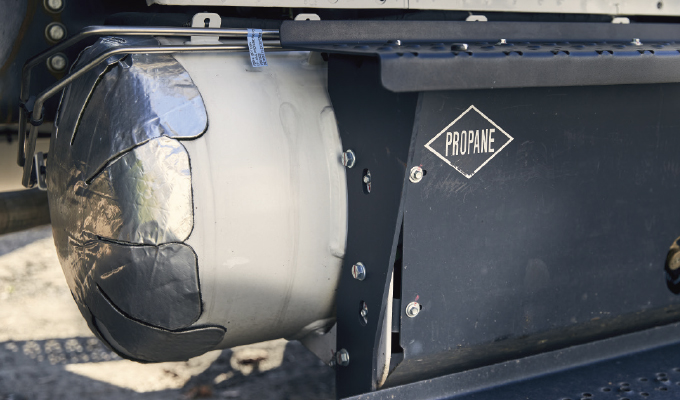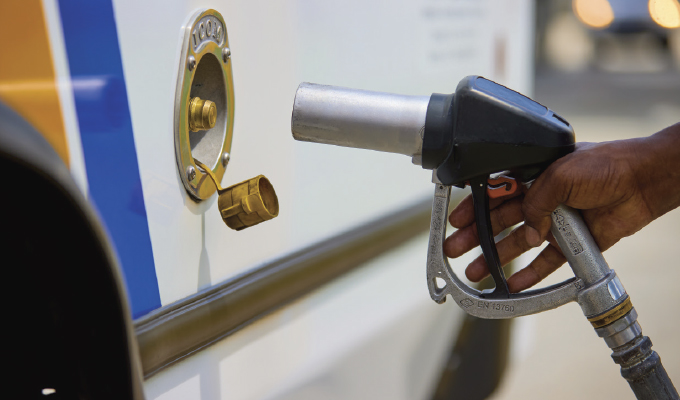Imagine you start your workday, your routes are planned, your drivers are ready — and then the power goes out. It’s not the first time it happened this month, and it could be minutes, hours, days before it comes back. While power outages aren’t something most fleet owners typically plan their day around, this scenario that once felt rare could soon become commonplace.
A new report from the U.S. Department of Energy (DOE) warns that electricity demand for AI data centers and advanced manufacturing is increasing at record pace and likely to strain the grid. If the country continues to retire dependable power sources like coal and natural gas-powered plants without replacing them with firm capacity, blackouts could increase by a factor of 100 by the year 2030. Even if dependable power sources aren’t retired, the outage risk in several regions rises over 30-fold.
Between the growing energy demand, aging infrastructure, and the expanding electrification of transportation, fleet owners need to evaluate their current energy options. This uncertainty has created a critical need for resilient, grid-independent energy solutions, like propane autogas. Whether fueling vehicles directly or powering off-grid EV charging solutions, propane gives fleet owners control, reliability, and peace of mind to protect their business from unexpected outages.
ENERGY INDEPENDENCE TO KEEP FLEETS MOVING
If fleet owners want to maximize resiliency, propane autogas is the energy for them. As an entirely grid-independent solution, propane autogas can keep fleets running — from powering vehicles to refueling them — regardless of if the grid is knocked offline. That kind of reliability isn’t just convenient, it’s critical for businesses that can’t afford downtime.
Unlike gasoline, diesel, or electric vehicles, which all rely in some way on the electric grid to refuel or recharge, propane autogas can be stored and dispensed separately from the grid. Most fleet owners opt to install a private propane autogas refueling station on their property to ensure fuel access regardless of what’s happening with other utilities. These stations include an appropriately sized tank and dispensers that are customized to meet a fleet’s demand. Since 90 percent of propane used in the U.S. is produced domestically, fleet owners can feel confident that they’ll have access to energy when they need it. This provides a level of insulation from volatility and bottlenecks that can come with other fuel sources.
If fleet owners are worried that they’ll need to service an area away from their base during times of disruption, they can work with their propane suppliers to place a refueling bobtail in areas of high need to ensure access to energy. During times of disruption like severe weather events, propane suppliers act as first responders to deliver propane to those who need it.
The vehicles themselves also provide a measure of resiliency. Propane autogas vehicles have a range of up to 400 miles and the performance that is needed for vehicles of that size to drive a long distance without stopping to recharge or refuel. They also have the power and performance to travel in all kinds of weather and across all types of terrain, unlike diesel and electric vehicles that can be impacted by freezing weather. It’s for these reasons that thousands of fleet owners and drivers across the country trust propane autogas to get the job done.

GRID-FREE CHARGING FOR ELECTRIC FLEETS
It may seem counterintuitive to consider using propane to charge electric fleets. However, as the DOE report has shown, the need for off-grid charging has become a necessity. When the power goes out, EVs that depend solely on traditional grid infrastructure will be left grounded.
Propane-powered EV charging solves this problem. These portable units employ a propane-powered generator, and in some cases renewable sources like wind and solar, to create an independent microgrid that can charge vehicles. During disruptions, they can be rapidly deployed to aid fleet owners in maintaining business as usual. Since they don’t require permanent infrastructure investments, these units are significantly less expensive than traditional EV infrastructure.
While some fleet owners are turning to similar off-grid charging solutions that use a diesel generator, this option counteracts the main goal of EVs: to reduce emissions. For light commercial microgrid (<100kW generation system) applications, propane fuel cells lead to near zero nitrogen oxide (NOx) and carbon monoxide (CO) emissions, as well as a 24 percent reduction in carbon dioxide (CO2) emissions compared with diesel.
Propane is also a shelf-stable energy that doesn’t degrade over time, unlike diesel which has a shelf life of just six to twelve months. When it matters most, fleet owners can’t second guess if their off grid charging solution will work. Incorporating a propane-powered EV charging solution into the mix is a smart investment that gives EV fleet owners added assurance they’ll be able to keep running if the grid goes down.
DON’T WAIT FOR THE GRID TO FAIL
These warnings from the DOE paint a grim picture of what could happen to fleets if owners don’t act soon to ensure their vehicles will remain resilient when faced with power outages. Even just a short outage can lead to rescheduling, lost revenue, and operational nightmares. While grid reliability is uncertain, one thing is certain: propane gives fleet owners options to avoid these issues now and into the future.
about the author
Joel Stutheit is the senior manager of autogas business development at the Propane Education & Research Council. He can be reached at joel.stutheit@propane.com. To learn more, visit propane.com/fleet-vehicles.




